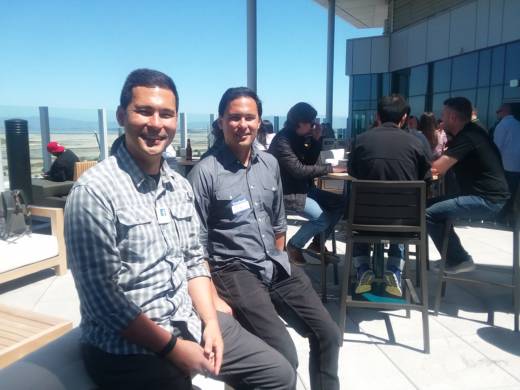This Saturday marked graduation day for 33 former military men and women participating in Facebook's first-ever cybersecurity course for veterans.
Graduate Kyle Gomez seemed amused by the contrast between Facebook's rooftop patio at its headquarters in Menlo Park -- with its modern furniture, scenic view and fancy spread -- and his four years in the Army.
"They do a lot to retain their talent," Gomez says of the trappings of the tech industry, "versus the Army where it's like, 'I want you to stand at this guard post and then think about what you want to do for the next 12 hours.' "
It was the lonely nights with his laptop that sparked Gomez's interest in computer science and brought the current De Anza Community College student, and nearly three dozen of his fellow veterans, to Facebook Cybersecurity University, which was created in collaboration with Codepath.
The students, who all had to have some background in IT or computer science, met every Saturday for seven hours for 12 weeks, learning the basics of cybersecurity, like trying to hack into systems to learn their vulnerabilities.
